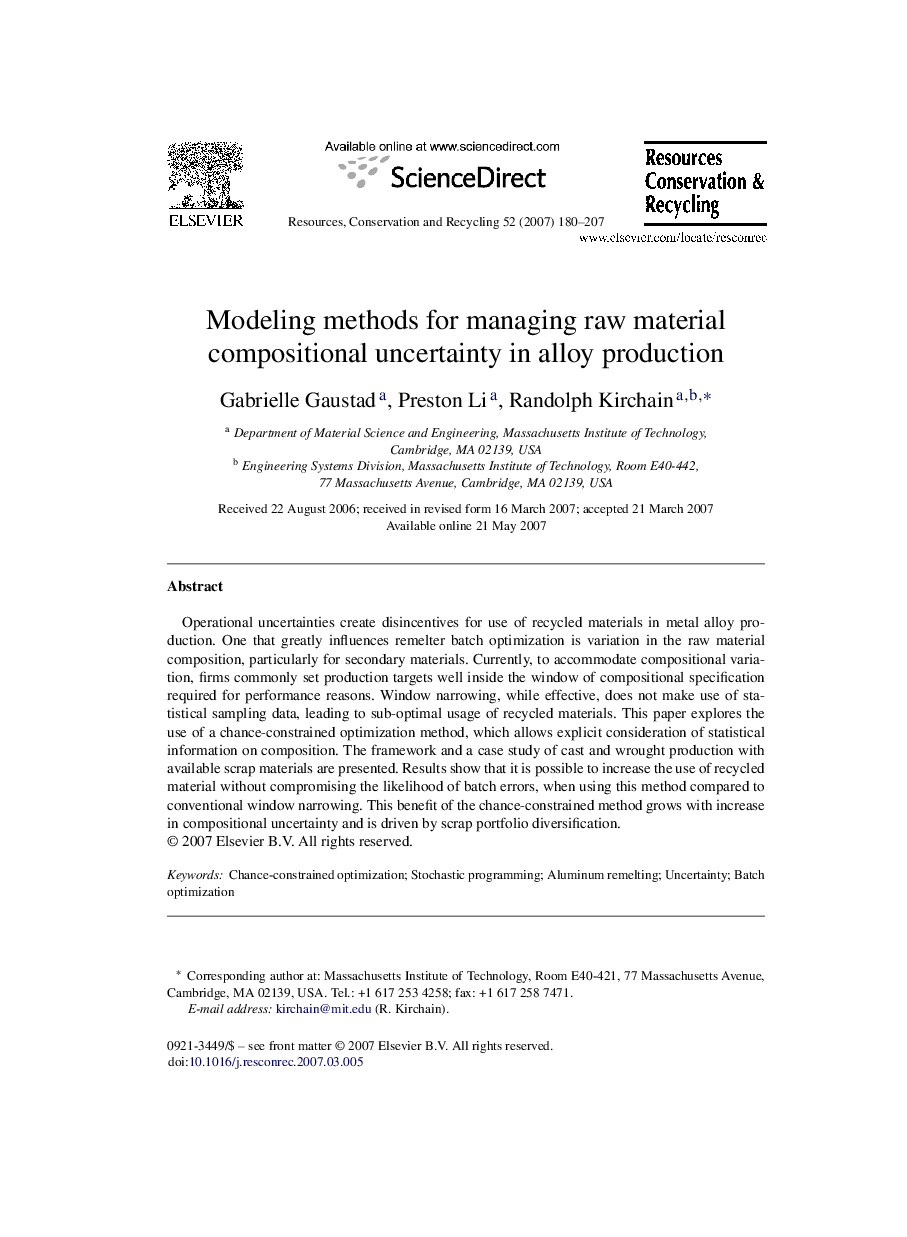| Article ID | Journal | Published Year | Pages | File Type |
|---|---|---|---|---|
| 1063904 | Resources, Conservation and Recycling | 2007 | 28 Pages |
Operational uncertainties create disincentives for use of recycled materials in metal alloy production. One that greatly influences remelter batch optimization is variation in the raw material composition, particularly for secondary materials. Currently, to accommodate compositional variation, firms commonly set production targets well inside the window of compositional specification required for performance reasons. Window narrowing, while effective, does not make use of statistical sampling data, leading to sub-optimal usage of recycled materials. This paper explores the use of a chance-constrained optimization method, which allows explicit consideration of statistical information on composition. The framework and a case study of cast and wrought production with available scrap materials are presented. Results show that it is possible to increase the use of recycled material without compromising the likelihood of batch errors, when using this method compared to conventional window narrowing. This benefit of the chance-constrained method grows with increase in compositional uncertainty and is driven by scrap portfolio diversification.
